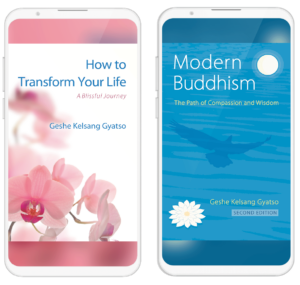Don’t be fooled - anxiety is not inevitable

Some scientists will tell you anxiety is essential for human evolution or even for daily functioning, others will say it is caused by our genetics. Some say it is “hard-wired” into our brains, or that it is “chatter” between different brain regions. Psychologists will point to family patterns or personality traits. Philosophers will console us it is part of the human condition.
The basic message: anxiety is part of our human nature – but maybe we can treat it with drugs or therapy when it gets too bad. Or you just have to grin and bear it. It is so embedded in our culture, science and thinking that if you were completely free from anxiety there would have to be something wrong with you. You would probably bediagnosed as mentally ill. To be normal is to feel bad!
Whenever someone says “that’s human nature” you can guarantee they are going to sell you short.
What would Buddha, the most modern of all thinkers, make of this contradictory situation? He would ask what exactly is anxiety? Not how you define it for monkey experiments, but what is its nature? It is a feeling. An unpleasant feeling. A very unpleasant feeling.
What is a feeling? It is a part of the mind. Therefore the causes of anxiety must be in the mind. And those causes can be removed from the mind by using the mind. We do not need to look outside. We just need to learn how. We simply have to identify, reduce and abandon the states of mind that are conducive to anxiety. And cultivate the states of mind that make it impossible for anxiety to co-exist. This can be done, systematically, methodically, pleasantly and only through meditation.

Here is the sequence. When we are experiencing inner peace we are naturally happy. Inner peace does not mean boring or inert. It means our mind is clear, positive and free from agitation and turbulence. When our mind is peaceful we feel relaxed and contented. We are OK with ourselves. When our mind is like this we cannot be anxious. If we can be learn to be peaceful for 30 seconds, we have learned not to be anxious for 30 seconds. If we can increase this to one minute, we are free for one minute. With practice we can keep extending this until we change our whole mental habits. We create a new default mechanism for our life. Instead of defaulting to anxiety we start defaulting automatically to positive, beneficial states of mind. We can do this. We can change our human nature. We are not its prisoner.
As Geshe Kelsang Gyatso says, we can improve our human nature. He says:
“Happiness and suffering are states of mind and so their main causes cannot be found outside the mind. If we want to be truly happy and free from suffering we must learn how to control our mind”
This means we need to learn to meditate.

